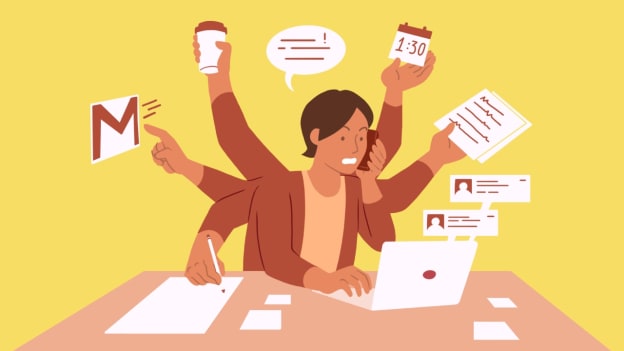Depressed, anxious, exhausted: signs of productivity guilt?

Have you ever had one of those days when you have so many things to do that you don't get around to doing any of them? Or do you work your way through a long to-do list only to discover you've achieved nothing significant? Even when you're supposed to be having a break, productivity guilt may strike you like a freight train if you've been indoctrinated in a culture that praises being busy.
It's only natural that when we have more free time, we want to make the most of it by doing something "useful." or to make use of this time for self-improvement. We're inundated with messages encouraging us to take up new activities, learn new languages, or learn a new dish to cook. What is the source of this pressure? How does this constant drive to achieve something harm our mental health by inducing productivity guilt?
Productivity guilt and its effect on mental health
We live in a culture that connects our job to our identity and sets a high value on what we do. Hence, we constantly feel compelled to account for our time and justify how we use it. This persistent need for forwarding motion without any of the advantages of accomplishing tasks—the overpowering, nervous sense of constantly wanting to achieve more or see greater results—is productivity guilt. It is the whispering voice in your mind asking, "What's more?" even though you are routinely achieving your objectives and completing duties.
This type of guilt is particularly detrimental since it doesn't let you fully enjoy the fruits of your hard work. Whether you've just finished a big project, cleaned your home, answered 50 e-mails, and prepared a meal, our brain is an avaricious little thing that continues looking for the rush that comes from productivity.
We're all attempting to achieve that idealised, flawless existence we've imagined for ourselves. And living a productive life requires us to constantly do more. But, no matter how beautiful our lives seem to be, we always have the persistent thought that we need to be doing more. That persistent feeling is also productivity guilt. When we feel like we are not achieving enough and living up to an illusionary image we have of ourselves, the guilt kicks in. When the guilt kicks in, it often creates anxiety and depression, leading to further mental health problems.
How to cope with productivity guilt
One of the most effective ways to cope with productivity guilt is to firstly take the shame out of it. Or else we end up feeling guilt and shame for experiencing productivity guilt in the first place. It's a natural human tendency to explore more, learn more, do more, and be more. It only becomes a problem when this natural tendency starts eating at us and affecting our mental health.
Now that we've taken the shame out of the productivity guilt, we can find better ways to cope with it. Another way to prevent this guilt is to make your to-do list for the day. We often fail to define what has to be accomplished, leaving us with an unclear to-do list that continues growing. As a consequence, we may conclude the day with more work to accomplish than when we began, after which the guilt follows.
The next step in overcoming productivity guilt is to accept that perfection is unrealistic and even dangerous to one's mental health. The emotional and physical energy we expend attempting to reach our idealized version of perfection may have harmful consequences, such as anxiety, depression which further increases productivity guilt.
To prevent productivity guilt, look at the repercussions of not doing a task you think you "need to accomplish". Most of the time, there aren't major consequences for not being productive for one day, even though productivity guilt may make us feel like the world is ending. Get honest about the consequences of your lack of productivity, and you'll feel less guilty and shameful - and you will be happier and healthier as a result.
This article was first published in June 2021.
















